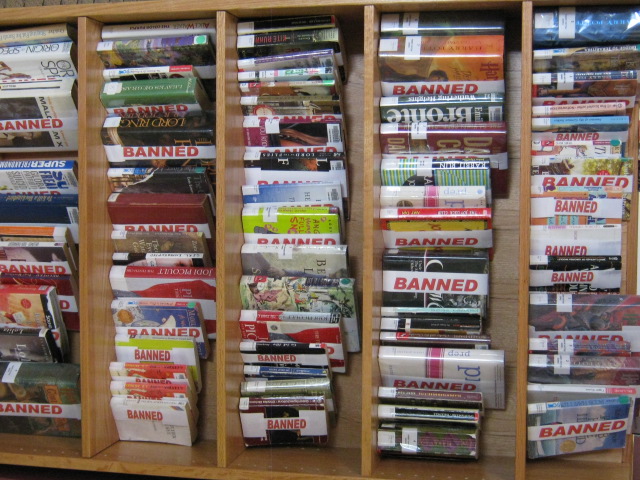 West Virginia wants to make some changes in order to protect the children. Of course, this starts with bills refusing transgender youth the right to use the bathroom that aligns with their gender identity, arming teachers and banning books for “obscene” material.
West Virginia wants to make some changes in order to protect the children. Of course, this starts with bills refusing transgender youth the right to use the bathroom that aligns with their gender identity, arming teachers and banning books for “obscene” material.
This is, unfortunately, nothing new in our country. These are the proposed bills and how each one chooses the wrong subject to focus on:
Restroom restrictions
The lead sponsor of House Bill 4806, Del. Dave Foggin, explained that he drafted this legislation in response to school administrators’ reports of complaints that were made to them. This is already a vague answer to be used as a reason for restricting transgender students from being themselves. This type of response also negates the emotions of the transgender community.
Rather, this reason places more value on the feelings of the people who made the complaints. The question then is what the complaints were and how transgender students using the restroom comfortably could bother anyone.
If this is an argument suggesting that transgender youth should be limited in what restroom they use because of the potential risk of bullying, then this type of legislation is completely missing the problem. The problem is not the transgender individual who merely wants to be recognized properly, but the bully who refuses to allow another person to live their life confidently.
Arming teachers
There has been an ongoing debate about arming teachers for years now. Over time, there has been a consistent trend of educators feeling uncomfortable with the idea.
In 2018, after the Parkland shooting, 2,926 educators from across the country and Guam answered a survey in which the majority did not support the idea of arming teachers. Not only did they believe that it would not do much in the face of an already active shooter, but they also believed it would increase the dangers if guns were to accidentally go off during drills.
“I think that arming a bunch of people without the training or desire to shoot guns is a disaster-in-the-making. I worry about students getting their hands on guns, and I worry far more about gun accidents than about school shootings,” one participant explained.
Now, while this survey was six years ago, there is another survey conducted from October to November of 2022 that found 54% of U.S. teachers believed arming teachers would make schools less safe.
Rather than arming the teachers, we need to restrict public access to assault rifles. I have said this many times before in my various other angry articles: there is no reason we as common people should be able to buy assault rifles.
Book banning
Finally, there is the issue of book censorship, or restrictions on the knowledge our youth can obtain. There are two trends that are notable in the process of book banning: themes of racism or LGBTQIA+ representation.
One children’s book that was banned is titled: “And Tango Makes Three,” a heartwarming tale about two male penguins, Roy and Silo, who want to have a family like the other penguins at the Central Park Zoo. When the zookeepers give them an egg to nurture, Tango is born and the rest of the story depicts their happy life together.
Apparently, a story like this is obscene, as are many other LGBTQIA+ children’s books that promote the idea of loving oneself or educate children on various identities, thus fostering social acceptance and making children feel more secure about who they are. So obscene.
As for books on race that are facing banishment, one I find personally infuriating is the ban of “The Bluest Eye” by Toni Morrison. This novel follows Pecola Breedlove, an 11-year-old Black girl.
Readers watch Pecola as she struggles with insecurity, with a heartbreaking desire to have blue eyes as they would “make her beautiful.” This is based on the white standards of beauty that were circulating in the time this novel is based in, 1940, as Pecola idolizes Shirley Temple.
The book can be upsetting, yes, but it is the type of discomfort that people need to experience to begin to understand just a small facet of the Black experience over time.
By banning these books, people are erasing the lives of those who can educate future generations and creating a cookie-cutter mold of what people should pay attention to: straight, cis-gendered white people.
All of these proposed initiatives aimed at “protecting the youth” are gravely disappointing. We are not protecting them this way, but rather are alienating them.
pbortner@ramapo.edu
Featured photo courtesy of Somerset Public Library, Flickr






